
Guggenheim
Tags
Guggenheim
Museum
The search for the most physically punishing, dramatic, tense and mentally exhausting athletic competition on Earth is over. Tennis has won—in a rout. The only question now is this: What can it possibly do for an encore?
![[AUSOPEN]](http://si.wsj.net/public/resources/images/ES-AB892_AUSOPE_DV_20120129191432.jpg) Associated Press
Associated Press
Novak Djokovic of Serbia celebrates after defeating Rafael Nadal of Spain after a nearly six-hour men's final. The only Grand Slam now tournament he has yet to win is the French Open.
In a final that left a world-wide audience looking on in disbelief, Novak Djokovic outlasted Rafael Nadal for the Australian Open title in a record five hours and 53 minutes, 5-7, 6-4, 6-2, 6-7(5), 7-5.
It was the second straight Australia Open title for Djokovic and his third straight victory at a Grand Slam tournament. He remains No. 1 in the world and the master of Nadal: Djokovic has won their last seven matches, all in finals.
Djokovic now has five Grand Slam titles in his career, well behind Roger Federer's 16 and Nadal's 10, but he's gaining ground with no sign of slowing down.
"We made history tonight," Djokovic said during the trophy ceremony.
When he hit his last winner at 1:37 a.m. Monday morning in Melbourne, Djokovic dropped to his back. Moments later he ripped open his shirt, screamed and pumped his fists.
But the trophy presentation showed the true condition of these men after the adrenaline had faded: They could no longer stand up and had to be given chairs. Before the seats arrived, Nadal leaned on the net while Djokovic stretched and seemed on the verge of collapse.
The record books will note this match as the longest Grand Slam final, almost an hour longer than it took Mats Wilander to beat Ivan Lendl at the 1988 U.S. Open (four hours and 54 minutes).
But the real history was in the shots, in the passion and in the indefatigable limbs of these two players. Several times, they both looked spent.
And then they came back to life, swinging furiously, running recklessly and sliding until their ankles seemed about ready to crack in two. At 4-4 in the fifth set, Djokovic fell on his back and was breathing heavily after Nadal won a 31-shot rally.
After five hours and 24 minutes of tennis, he had just sprinted and stopped and sprinted for more than 300 feet, according to an ESPN graphic—all to lose a point. He still had about 30 minutes left to play.
![[0129ausopen02]](http://si.wsj.net/public/resources/images/OB-RO608_0129au_DV_20120129095915.jpg) Getty Images
Getty Images
Novak Djokovic celebrated the hard-fought match by ripping off his shirt.
"You're going through so much suffering your toes are bleeding," Djokovic said. "Everything is just outrageous."
Even more outrageous: In the semifinals, Djokovic needed five sets and nearly five hours to defeat Andy Murray. That was Friday evening.
On Sunday evening, Nadal won the first set after a shaky start from Djokovic.
But Djokovic quickly found the combination that works so well for him against Nadal. He hit forehands and backhands from inside the baseline, and used the unique arms that seem to stretch 10 feet when he's on the run. And he pounded away at Nadal's serve, winning 55% of points against second serves.
"I never played against a player who's able to return like this," Nadal said. "Almost every time."
The match soon had a familiar look, and so did Nadal: glum and resigned to another defeat against the man who had beaten him in last year's Wimbledon and U.S. Open finals.
And then came the crucial moment, when Nadal served at 0-40 when trailing 4-3 in the fourth set. One more point and Djokovic could serve for the match. That one point never arrived as Nadal played his most brilliant tennis of the evening: forehand winner, service winner, backhand winner, ace and a strong serve to finish off the game.
What next? Why it began to pour, of course. Ten minutes later the roof over Rod Laver Arena was closed and the struggle was on. Djokovic came within two points of winning the match in the fourth-set tiebreaker before Nadal sent the match to a fifth set.
Nadal used to be the best defender in tennis. He's now second to Djokovic.
Nadal used to have the most endurance. Now, Djokovic does. And Nadal used to be the greatest—by a mile—at wriggling out of impossible situations, at saving crucial break points and hitting passing shots from awkward positions on the court, especially when a match was on the line.
Djokovic is now king in this regard, too. Down 4-2 in the fifth set, he did what he does better than anyone: escape.
When Nadal earned a break point in the final game of the match, Djokovic hit a forceful forehand for deuce, made the sign of the cross and then finished off the match two points later.
One might think that Nadal, who became the first man in the Open era, which began in 1968, to lose three consecutive Grand Slam finals, would be shattered after such a loss. Yet he sounded remarkably upbeat after finally pushing Djokovic to the edge of defeat (they had never played a five-set match before).
"Important thing for me, during all 2011 I didn't play much like this. I'm happy I am in the real right way," he said. "I suffered during the match, but I enjoyed all the troubles that I had."
And what now for Djokovic, the man who has improbably raised the bar in tennis just a few years after Federer won a record 16 major titles and Nadal showed that he could consistently beat the once invincible Federer? Why the French Open, of course, the only Grand Slam tournament Djokovic has yet to win.
"I have never been in finals there, and I have a feeling that I'm ready this year to achieve that," he said.
If both Nadal and Djokovic are ready when that June day arrives, then maybe there is yet somewhere better for tennis to go. At the very least, officials at Roland Garros should consider starting the match in the early morning—or install lights.
Novak Djokovic, Djokovic, Rafael Nadal, Nadal, Associated PressNovak Djokovic, Grand Slam tournament, Roger Federer
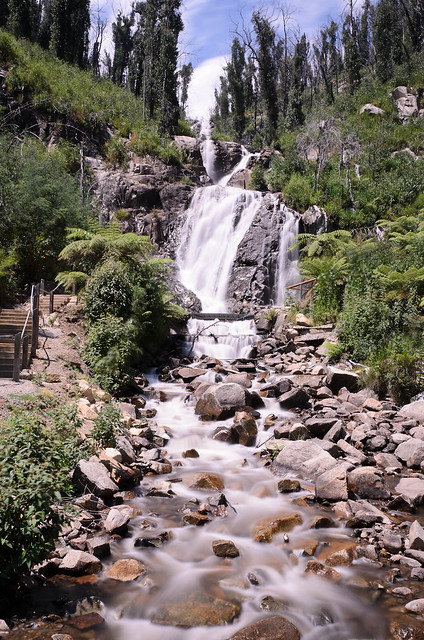
29/366 Steavenson's Falls three years after the bushfires
It's the first time i've been willing to come back after everything was burnt.
15 second exposure with B&W 10 Stop ND filter.
Tags
D7000
geo:countrys=
geo:state=
geo:city=
waterfall
water
fire
bushfire
burnt
forest

Toca Cielo Black Light
Tags
Ale Ale
Cielo
DJ
Justin Justin
Meat Packing District
NYC
Toca
dance
nightclub
party
New York City
NY
USA
ABU DHABI, United Arab Emirates -- Maybe those swing changes are paying off for Tiger Woods.
Woods moved into contention with a 3-under 69 Friday after three birdies over five holes on the back nine in the second round of the Abu Dhabi Golf Championship, finishing two shots behind leader Thorbjorn Olesen of Denmark (67).
“I’ve grown to understand what Sean (Foley) wants me to do and how my body is going to do those things and produce the numbers he wants me to produce,” Woods said.
Olesen made seven birdies in his first 12 holes for a one-shot lead over 18-year-old Gareth Maybin of Northern Ireland (70) and Matteo Mannasero of Italy (65).
“For me it’s very special. It’s not many years ago I was watching them on TV,” Olesen said of the world’s best golfers. “I know it’s tough, but I’m trying to keep playing my own game and do my best.”
Rory McIlroy finished with a 72 after a two-stroke penalty for brushing away sand in front of his ball on the fringe at the ninth hole.
The 22-year-old U.S. Open champion, playing again with Woods and top-ranked Luke Donald (72), opened with a bogey and double bogey on the third after an errant drive and some shaky putting.
He rallied with three birdies before a double bogey on the ninth. That’s when Donald spotted the sand infraction and called him on it.
Players are allowed to brush away sand on the green but not on the fringe.
“Wasn’t thinking clearly and a penalty there,” McIlroy said. “My ball was just maybe six feet off the green and there was a lot of sand in between my ball and the hole.”
McIlroy, the co-leader after the first round with a 67, managed two birdies on the next three holes after the infraction.
Woods started slowly with two birdies and a bogey on the front nine. He warmed up with birdies on the 11th, 12th and 15th before dropping a shot on No. 16 after an errant drive landed in deep rough.
“I thought I played well today,” Woods said. “I made a couple putts here and there, but it was tough out there. The greens got a little quicker, a little bit drier and the rough is certainly getting deeper and more lush.”
The best score of the day came from Manassero, who made seven birdies in a bogey-free round.
Woods is tied for fourth in a group that includes McIlroy and Robert Karlsson of Sweden (72).
Spain’s Sergio Garcia (69), Ireland’s Padraig Harrington (69) and South Africa’s Charl Schwartzel (70) are another shot back at 140.
Fourth-ranked Martin Kaymer (73) failed to make the cut in a tournament he has won three times.
Much of the attention was on Woods, who is trying to follow up his season-ending victory last month at the Chevron World Challenge with another win. That ended a two-year run without a victory, a period in which the 14-time major winner endured a series of injuries and turmoil in his personal life.
Woods had a bogey-free first round but admitted the greens fooled him much of the day. He seemed to figure them out Friday, making several key putts including a 10-footer for his birdie on the 15th.
Woods said he’s adapting to the new system under Foley.
“If you would have asked me (six to eight months ago) if I would understand the system as well as I do and the numbers I’m producing, I probably would have said no,” he said. “Now I do and when we talk, it’s very simple.”
McIlroy said he saw signs of the old Woods during the past two days, which featured a strong short game and ability to shape the most difficult shots.
“He’s definitely got the ball under control. He seems comfortable. He’s only had a couple bogeys in two days,” McIlroy said. “He’s not making many mistakes and he’s very consistent, his ball flight looks good. Really looking forward to battling over the weekend.”
Donald struggled with his drives much of the day, finishing six shots back. Third-ranked Lee Westwood (72) was another stroke back.
British Open winner Darren Clark missed the cut after shooting a 9-over 153. Others failing to qualify for play on the weekend included Colin Montgomerie of Scotland (147), Edoardo Molinari of Italy (149), Todd Hamilton of the United States (149) and Michael Campbell of New Zealand (149).
ABU DHABI, United Arab Emirates, Thorbjorn Olesen, Luke Donald, birdies, Rory McIlroy, Abu Dhabi Golf Championship, double bogey, ebook download

Got That Frosty Mug Taste
A&W All-American Food
1410 Nevada Hwy
Boulder City, NV 89005-1805
(702) 293-2340
Tags
A&W
A&W Rootbeer
Clark County
Nevada
USA
United States
United States of America
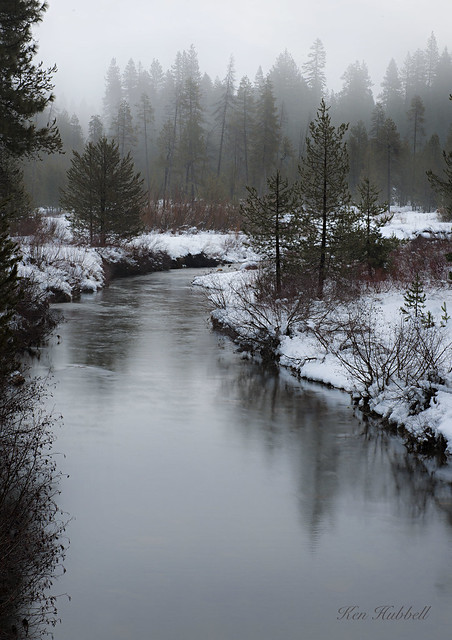
Deer Creek
i didn't have to work today, so I jumped in the Jeep and went scouting. Found a couple places that I will shoot in the spring. And a few to go to when we get some more snow. Nice day
Kenny
Tags
Landscape
Deercreek
Water
Creek
Trees
Nikon
D3X

#8 Stranger - Icaro
This photo is also part of the 100 strangers project: 100 Strangers Flickr Group page
After a day of work I decided to take some pictures at Paulista Avenue, an important business venue here in Sao Paulo.
I found Icaro near Conjunto Nacional, a business center, standing, waiting for his friend.
He was really cool about his picture being taken. As I finished taking his picture, his friend came and I kept searching for more strangers to shoot.
Tags
5d mark ii
avenida paulista
bokeh
canon
earrings
icaro
photo
photograph
piercing
portrait
ricardo satoshi
sao paulo
business venue, strangers, Paulista Avenue, business center, Conjunto Nacional, strangers project, Flickr

Fighting
View On Black
Two half naked men fighting each other with knives? I'm not sure what this is supposed to be about.. anyway, the statue is located in front of Vnersborg museum.
I tried to frame them with the two trees in the background. It was a foggy day, I really like how it turned out in black/white.
Tags
statue
black and white
vnersborg
stone
men
muscles
partial nudity
knives
museum
mist

THE BEACH (4)
Photograph taken at 12:34pm on August 31st 2011 off Sand Dunes Road near the Oregon Coastal Highway 101 in Florence, Lane County, Oregon State, USA.
Nikon D700 14mm 1/200s f/18.0 iso200
Nikkor AF-S 14-24mm f/2.8G ED IF. Manfrotto 055XPro carbon fibre tripod & Manfrotto 327 RC2 Magnesium pistol grip ball head. Nikon DR-5 right angle viewfinder. Nikon GP-1.
LATITUDE: N 43d 57m 32.12s
LONGITUDE: W 124d 8m 36.63s
ALTITUDE: 9.0m
Tags
'florence usa'
'sand dunes'
dunes
sand
beach
'golden sand'
oregon
florence
'oregon cost'
'the beach'
'lane county'
utopia
paradise
sea
pacific
waves
water
coastline
driftwood
grass
nature
landscape
'mother nature
nikon
'nikon d700'
usa
'the oregon coast highway'
Florence, Lane County, Oregon State, Oregon Coastal Highway 101, Nikon, Sand Dunes Road, Manfrotto, BEACH

018/366 chicken
let's not be that guy.
Tags
aj
brustein
photoproject
threesixfive
365
threesixsix
366
photo
project
chicken
canon
50d
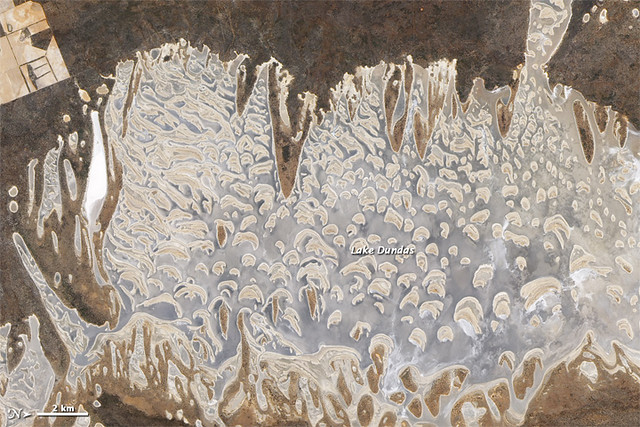
Lake Dundas, Western Australia
To download the full resolution and other files go to: earthobservatory.nasa.gov/IOTD/view.php?id=76929&src=...
Salt lakes of assorted sizes occur throughout southwestern Australia, and one of the larger ones is Lake Dundas. Located about 130 kilometers (80 miles) inland from the coastal city of Esperance, Lake Dundas occupies a region of low rainfall and abundant sunshine. This salt-encrusted lake presents a complex face to satellite sensors, with plentiful islands poking above the water line.
The Advanced Land Imager (ALI) on NASA’s Earth Observing-1 (EO-1) satellite captured this natural-color image on November 30, 2011. Note that the image has been rotated so that north is to the right.
Southwest of the lake (image upper left) are agricultural fields, identifiable by their neat, straight borders. The contour of the lake, in contrast, is wildly uneven, with long stretches of dry land poking into the lake from the east and west. Dry, arid climates are the norm in many parts of Australia, and sparse rainfall leaves this lake shallow and salty, especially in the summertime.
Geologic studies indicate that this salt lake was once part of a very different ecosystem. Lake Dundas sits at the southern end of a line of salt lakes stretching roughly 170 kilometers (105 miles) north to south. Examination of rock layers suggests that these lakes were parts of massive drainage channels. The ancient channel that now holds Lake Dundas likely formed before the Jurassic Period (during the Age of the Dinosaurs). At that time, Australia and Antarctica were part of the same continent. The drainage channel that now holds salt lakes in Australia was likely fed by headwaters in Antarctica, which is now frozen and 3,800 kilometers (2,400 miles) away.
NASA Earth Observatory image created by Jesse Allen and Robert Simmon, using EO-1 ALI data provided courtesy of the NASA EO-1 team. Caption by Michon Scott
The Earth Observatory's mission is to share with the public the images, stories, and discoveries about climate and the environment that emerge from NASA research, including its satellite missions, in-the-field research, and climate models.
Like us on Facebook
Follow us on Twitter
Add us to your circles on Google+
Tags
NASA
ALI
EO-1
salt
lake
Australia
Lake Dundas, Australia, Advanced Land Imager, salt lakes, ALI, NASA, Michon ScottThe Earth Observatory

Parque do Hotel Tau
Hotel Tau, Arax, Minas Gerais
Tags
Arax MG
Brasil
Brazil
Hotel Tau
Lagos
Lakes
Lugares
Minas Gerais
Panorama
Water
hdr
reflexos
The shares of online radio service Pandora Media Inc. have risen nearly 25 percent since the start of the year in the face of Wall Street doubters who believe it will get upended by digital music rivals such as Spotify and MOG.
Pandora impressed investors this week when it revealed it now has 125 million registered users, up from 80 million just under a year ago. It also now claims an average listener of 18 hours a month, which analysts said is six times more than its closest competitor Clear Channel’s iHeartRadio.
Since markets opened this year, Pandora has risen by about $2.50. After two days of sharp rises, it pared back by 21 cents yesterday to close at $12.24.

Copyright 2010 Thomson Reuters. Click For Restrictions

o la nature s'emmle
Tags
Ardche
rhne-alpes
l'aiguillon
les concluses
french
vintage
trees
photography
France
europe
travel
fond d'cran
wallpaper
quiet
peaceful
beauty
photo
francia
frankreich
light
photographie
shot
geotagged
color
colour
couleur
green
vert
beaut
lumire
Canon
arbres
day
spring
journe
printemps
exbr
sun
soleil
ombre
shadow
paysage
landscape
nature
detail
vgtation
rivire
ruisseau
river
eau
water
reflets
reflections
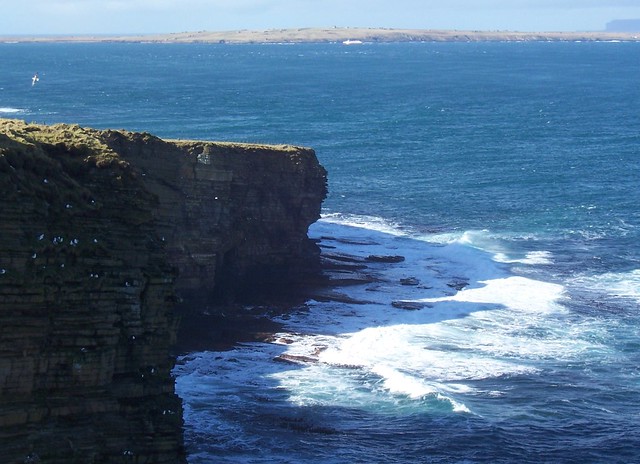
Duncansby Head Cliffs, Caithness
This place is alive with birds, and the noise of them calling out, then you have the sea crashing in of the rocks and causing a great foam and spray. This is the Pentalnd Firth, today it is quite calm, and a nice shade of blue. In the distance you can see the Island of Stroma which was habited until the 1950's
Tags
duncansby
head
cliffs
noise
spray
foam
rocks
danger
warning
water
sea
birds
dramatic
special
blue
stroma
allanmaciver
Pentalnd Firth, Duncansby Head Cliffs
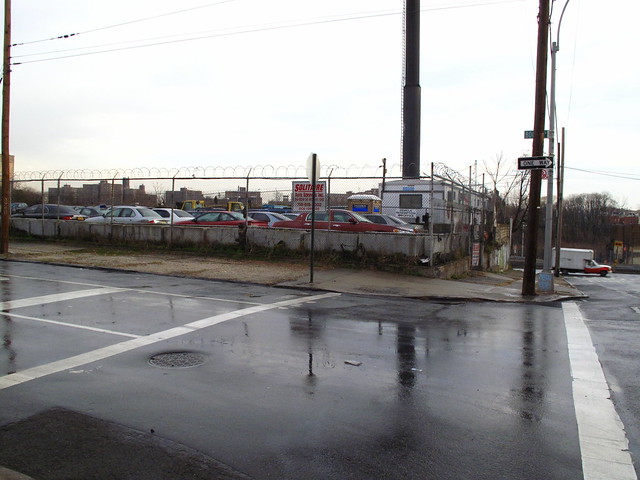
Former Site Of West Farms Reformed Dutch Church Cemetery
West Farms, Bronx, New York City, New York, United StatesMost of the graves were moved to Woodlawn Cemetery, but in 1927 there were three gravestones left. It's not clear if they are still at this site.
Tags
12/31/2011
31 de diciembre de 2011
31/12/2011
31-XII-2011
Borough of the Bronx
Bronx
Bronx County
December 31, 2011
December 31, 2011 walk
El Bronx
New York City, NY
New York, NY
Nueva York
Nueva York, EE.UU.
Nueva York, Estados Unidos
Nueva York, Nueva York
NY
NY, NY
NYC
Paseo del 31 de diciembre de 2011
The Bronx
United States
United States of America
USA
West Farms
Former Site Of West Farms Reformed Dutch Church Cemetery
West Farms Reformed Dutch Church Cemetery
2011
2011 walk
Bronx River Houses
December 31
EE.UU.
Estados Unidos
New York
NYCLPC
Charlotte Gardens
Reformed Dutch Church, New York City, Reformed Dutch Church CemeteryWest Farms, Woodlawn Cemetery, United StatesMost, gravestones, York
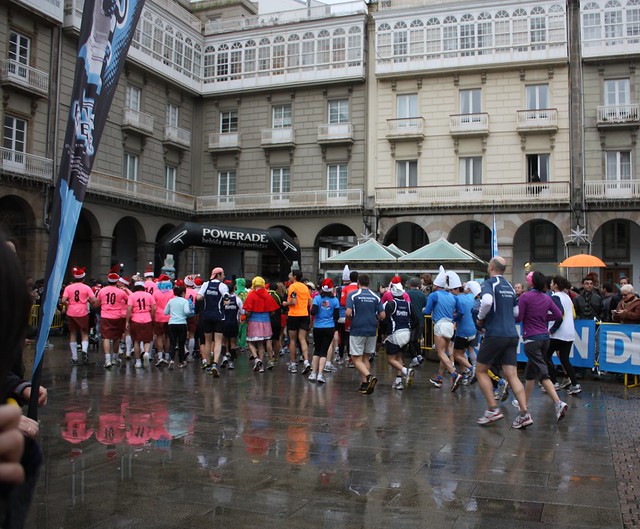
IMG_3227a
Tags
carreras populares
running
atletas
Correr
Coruna
A/La Corua
Corunna
La Corua
La Corogne
canon
atletismo
carrera
corrida
deporte
San Silvestre
Sansil
II San Silvestre de A Corua
Galiza
Galicia
Galice
Espaa
Spain
Espagne
Espanha
Spanien
Spagna
Europa
Europe
eu
31 de diciembre
athletes
athletic
athletics
atleta
rcord
disfraz
disfraces
San Silvestre A Corua
We are ruined by our own biases. When making decisions, we see what we want, ignore probabilities, and minimize risks that uproot our hopes.

Large data sets and applied analytics will soon be driving daily business decisions, Dennis Berman reports on the News Hub. Photo: AP.
What's worse, "we are often confident even when we are wrong," writes Daniel Kahneman, in his masterful new book on psychology and economics called "Thinking, Fast and Slow."
An objective observer, he writes, "is more likely to detect our errors than we are."
The new year will bring plenty of splashy stories about iPads and IPOs. There is a more important theme gathering around us: How analytics harvested from massive databases will begin to inform our day-to-day business decisions. Call it Big Data, analytics, or decision science. Over time, this will change your world more than the iPad 3.
Computer systems are now becoming powerful enough, and subtle enough, to help us reduce human biases from our decision-making. And this is a key: They can do it in real-time. Inevitably, that "objective observer" will be a kind of organic, evolving database.
Enlarge Image

Close

These systems can now chew through billions of bits of data, analyze them via self-learning algorithms, and package the insights for immediate use. Neither we nor the computers are perfect, but in tandem, we might neutralize our biased, intuitive failings when we price a car, prescribe a medicine, or deploy a sales force. This is playing "Moneyball" at life.
It means fewer hunches and more facts. Think you know something about mortgage bonds? These systems are now of such scale that they can analyze the value of tens of thousands of mortgage-backed securities by picking apart the ongoing, dynamic creditworthiness of tens of millions of individual homeowners. Just such a system has already been built for Wall Street traders.
Crunching millions of data points about traffic flows, an analytics system might find that on Fridays a delivery fleet should stick to the highways— despite your devout belief in surface-road shortcuts.
You probably hate the idea that human judgment can be improved or even replaced by machines, but you probably hate hurricanes and earthquakes too. The rise of machines is just as inevitable and just as indifferent to your hatred.
Business people have been having such fantasies of rationalism for decades. Until the last few years, they have been stymied by the cost of storage, slower processing speeds and the flood of data itself, spread sloppily across scores of different databases inside one company. These problems are now being solved.
"We've just got to the point where the technology really starts to work," says Michael Lynch, chief executive of Autonomy Corp. Hewlett-Packard Co. just spent $11 billion to buy Autonomy, which vacuums up "unstructured data" then applies it to these analytic approaches.
Of course, the hype is growing fast, too. Company valuations in this space have pushed higher, and surely some will falter along the way. That won't matter much in the long run. The story of 2012 is how these technologies are inching closer to each one of us.
For a glimpse, look inside The Schwan Food Co., whose 6,000 roving sales people deliver frozen products to homes of three million customers across the country.
Enlarge Image

Close

Associated Press
In the future, we all will play 'Moneyball' like Billy Beane, using real-time analytics.
Schwan home sales were listless for four straight years, beset by high customer churn and inventory pileups. Over 10 months, the venerable Minnesota company began a program with the aid of Opera Solutions Inc. of New York, an eight-year-old analytics firm.
Schwan already had a crude recommendation program. Its sales people could look at six weeks of orders, and suggest purchases from that list.
The new project took it into more sophisticated territory: Matching seemingly disparate customers with similar purchase patterns in their past. Opera calls them finding "genetic twins." It also added ways to track whether customers' spending was fading from certain categories—say, breakfast foods—and offered product suggestions and discounts to keep the spending intact.
Schwan's database is now pushing out more than 1.2 million dynamically-generated customer recommendations every day, sent directly to drivers' handheld devices. Opera says Schwan's revenues are up 3% to 4% because of it.
"There is a whole class of things that couldn't be done five years ago," says Opera CEO Arnab Gupta, who just landed an $84 million venture investment from investors including Accel-KKR and Silver Lake Sumeru. His company is now valued at around $500 million. "A few years ago it might take a month to run a project involving 30 billion separate calculations. Today it can be done in two to three hours."
The big goal is to push all the heavy back-end work forward to front-line workers, often as a "dashboard" on a handheld device.
Soon, a drug saleswoman will have real-time analytics that tell her to focus on the doctors who spent time on social networks that morning, and who are thus more apt to influence colleagues, says Dhiraj C. Rajaram, founder of analytics company Mu Sigma, of Northbrook, Ill. Last week Mu Sigma raised $108 million in venture funding from General Atlantic and Sequoia Capital.
A warning awaits, of course. As Mr. Rajaram explains, analytics will eventually become the norm, which will push adaptation and business cycles even faster than they are today. "As computers become better and better, our lives are becoming more and more complex. They create new problems as much as they solve old ones."
Until then, we should take some comfort—however difficult it may feel—that machines will help us eliminate our worst human tendencies. Mr. Kahneman reminds us best: "We often fail to allow for the possibility that evidence that should be critical to our judgment is missing. What we see is all there is."
The Game is a regular column covering the future of business. Follow on Twitter @dkberman or write to dennis.berman@wsj.com.
Daniel Kahneman, business decisions, Moneyball, objective observer

love ME
www.youtube.com/watch?v=hpnHx5ktraU
one moment, for ever
Tags
teddy
bear
love
me
you
happy
new
year
2012
lights
greece
athens
bokeh
red
green
hand
people
nikon
d90
design
milaiou
life
dimitra
happiness
europe
christmas
xmas
holidays
tree
one
moment
forever
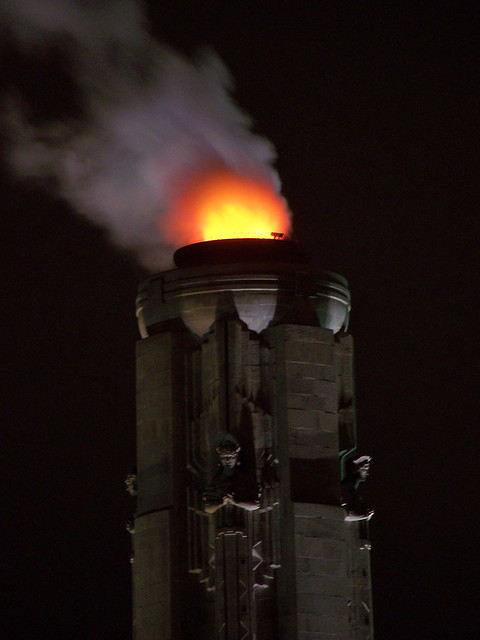
Liberty Memorial Tower Torch - Night
During the day the top of the tower looks to be just a blunt cylindar with the observation deck situated like a donut around the central column that is only slightly higher. But at night the tower turns into a giant torch with a smoking fiery red glow that is visible for miles.
Tags
Kansas City
Missouri
national
world
war
1
one
museum
liberty
memorial
night
Liberty Memorial Tower Torch, the observation deck